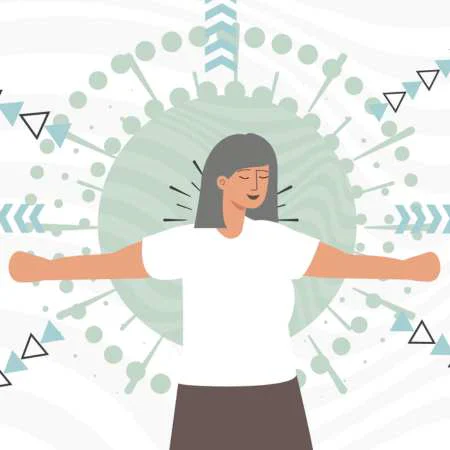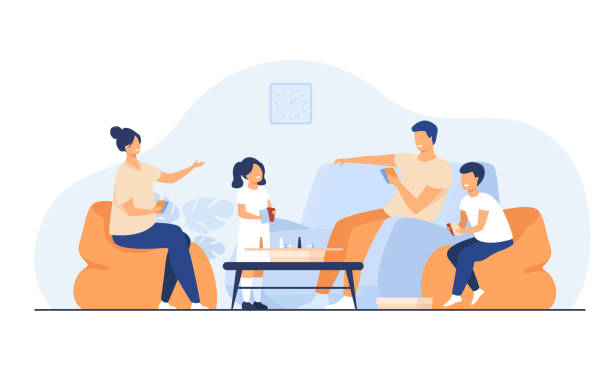April Wellness Spotlight
April is National Stress Awareness Month!
According the Mayo Clinic, your body is made to react to stress in ways to protect you against threats from predators or other forms of danger. These threats are often rare today. Instead, you likely are faced with daily demands. For example, you may have a large workload, stress about paying bills, or the need to take care of your family. Your body’s reaction is to treat these tasks like a threat, and you may feel under attack. A 2022 American Psychological Association survey found that 76% of respondents reported experiencing some form of stress over the past month. It is important to learn how to cope with stress and not let it overtake your life. This Wellness Spotlight will include information on how stress affects us, signs of stress, and ways to manage stress.
How can stress affect us?
According to the World Health Organization, stress affects both the mind and the body. Stress is something that affects everyone differently. A small amount of stress can help us perform daily activities, but too much stress can cause physical and mental health problems. Harvard Medical School has found that chronic long-term stress can contribute to high blood pressure promotes the formation of artery-clogging deposits, as well as changes to the brain that may enhance anxiety, depression and addiction. Stress can leave you feeling tired, unmotivated, and upset.
Stress can lead to missing activities, work, and even cause trouble sleeping. The American Institute of Stress mentions that about one million Americans miss work each day due to stress. In addition to this, more than 50% of workers are not engaged at work due to stress, which leads to a drop in productivity. Baylor College of Medicine has stated that stress can have a negative effect on sleep, which affects our overall health. Sleep loss triggers our body’s stress response system, leading to an elevation in stress hormones, namely cortisol, which further disrupts sleep.
Below you will find ways to help subside the effect of stress on the body, and get to feeling your best. If you find yourself experiencing physical symptoms that you think may be related to stress, it is important to consult with your doctor.
What are the signs of stress?
According to the Mayo Clinic, stress can be shown in many ways as seen below:
| Physical Symptoms | Mental & Emotional Symptoms | Behavioral Symptoms |
|---|---|---|
| Headache | Anxiety | Overeating or undereating |
| Muscle tension or pain | Restlessness | Angry outbursts |
| Chest pain | Lack of motivation or focus | Drug or alcohol misuse |
| Fatigue | Memory problems | Tobacco use |
| Change in sex drive | Feeling overwhelmed | Avoiding friends and staying at home |
| Stomach upset | Grumpiness or anger | Exercising less often |
| Sleep problems | Sadness or depression | |
| Getting sick easier due to a weaker immune system |
How can I manage stress?
-
 Get regular physical activity
Get regular physical activity- Any form of activity can be a stress reliever. The Mayo Clinic emphasizes that physical activity can pump up your feel good endorphins and other natural neural chemicals that boost your sense of well-being. It can assist in realigning your body’s movements and your mind. It is beneficial to get into a routine of physical activity which can bring remarkable changes to your metabolism, heart, and mind. The CDC recommends 150 minutes of moderate-intensity physical activity and 2 days of muscle strengthening activity per week.
-
Practice relaxation techniques

- Relaxation techniques are a great way to manage stress. The Mayo Clinic has noted many benefits of relaxation techniques which include a lower blood pressure, improved digestion, improved sleep quality, and improved focus and mood. There are numerous types of relaxation techniques which include deep breathing, meditation, and yoga. Healthy Minds Program is a free app that offers guided practice to support mindfulness
-
Spend time with friends and family
- Relatives, friends, coworkers and companions may increase longevity as stated by Harvard Medical School. There are many benefits of friendships that may decrease anxiety. According to the Mayo Clinic, some of the benefits of friendships include increased sense of belonging or purpose, boosts happiness and reduces stress, improved self-confidence and self-worth, as well as encouraging you to keep healthy habits.
-
Set aside time for hobbies

- Make time for hobbies and activities that you enjoy to help ease your mind from stress. This could be reading, gardening, listening to music, going for a walk, cooking a new recipe or exercising. It is also beneficial to try new hobbies that you may find enjoyable.
-
Get enough sleep
- Lack of sleep can heighten stress within the body. Sleep affects your mood, energy level, focus, and overall health. Sleep is the time when your brain and body are able to recharge. It is recommended by the Mayo Clinic that most adults need about 7 to 9 hours of sleep each night. Make sure to have a comfortable sleep environment which includes a cool, dark and quiet bedroom. It is also important to put electronics out of sight and stick to a regular schedule.
-
Eat a healthy, well-balanced diet

- The American Psychological Association notes that many adults report falling into unhealthy eating patterns when sick, which leads to feeling sluggish or tired. Harvard School of Public Health mentions that a balanced diet can support a healthy immune system and repair damaged cells. It gives energy needed to help cope with events that may be stressful. It is important to have veggies on your plate, along with consuming nutrient dense snacks throughout the day and limiting caffeine. It is also important to stay away from alcohol and drugs as those can heighten stress.
-
Seek counseling
- Finding a counselor to talk about your stress with can be helpful. They can guide you in the right direction of a stress-free mind. Your doctor can refer you to a counselor, or help you find online counseling. If you are feeling stressed, it is important to reach out for help.
Resources:
Stress symptoms: Effects on your body and behavior – Mayo Clinic
American Psychological Association
World Health Organization – Stress
Understanding the Stress Response
How Stress Can Affect Your Sleep
How Much Physical Activity is needed?


